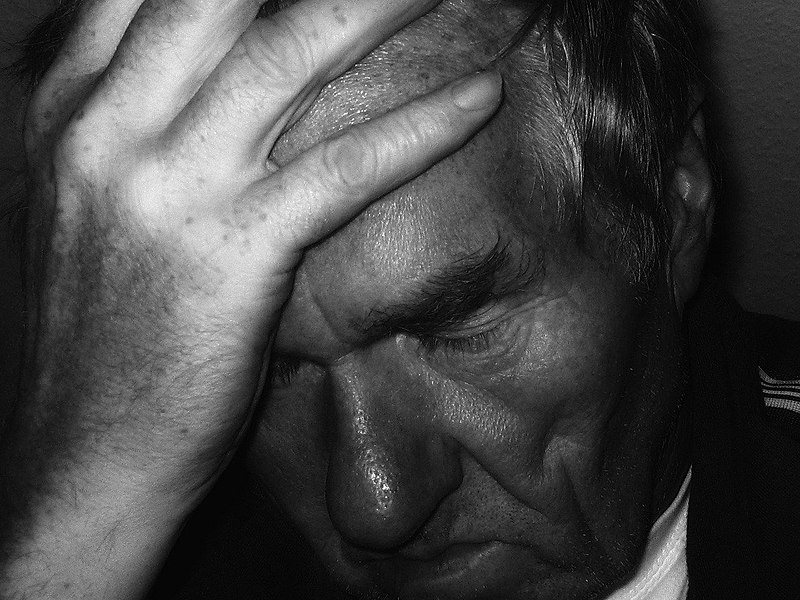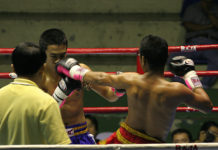If you have trained BJJ for any length of time, you are probably familiar with the fact that people quit BJJ constantly. There are many reasons for people quitting BJJ. Realistically, all of us grapplers will face one or several of the hurdles that cause many to fall off the BJJ wagon. The key to a long-term commitment to BJJ is identifying these problems and facing them head-on.
We have broken down some of the main reasons people quit BJJ and some of the top strategies for avoiding and overcoming these problems.
The Reasons People Quit BJJ
People quit BJJ for a variety of reasons. While this is by no means an exhaustive list, the following are some of the top causes for people stopping training.
Time

Time is undoubtedly the biggest overall reason people quit BJJ. In fact, nearly every other reason we discuss ties back into the time requirement for BJJ training.
In the short-term, BJJ eats up an incredible amount of time. Regardless of your occupation or work schedule, it is never 100 percent convenient to train BJJ. If you have a day job, your options are training in the morning or evenings.
This means you are either getting up super early to grind out a 6am class or regrouping after a long day of work to spend your evening at the dojo.
Neither of these scenarios is ‘easy’ when it comes to managing an overall schedule. Particularly when you realize the timeframe and frequency required for progress in BJJ, you are giving up most of the hours that other people are spending on leisure.
Thinking long-term, BJJ requires an incredibly long timeframe to truly develop real skill. In the era of weeklong crash diets or even 3 month transformations, the decades required for true BJJ mastery are daunting even to the most committed student.
If we just look at a single belt rank, the average time to earn a blue belt is 1-2 years.
When we look at getting to more advanced ranks, we are talking and double or triple that period for purple or brown belt.
Dedicated fitness enthusiasts go from obese to fitness-model physique in less time than a purple belt can take.
People get college degrees in the same timeframe.
In fact, entire businesses and careers have been built in less time.
And guess what, when you do get a purple belt, you are barely halfway to black belt.
Cyclical improvements, plateaus, and burnout

When you first start BJJ, you are not fully aware of the overall process of BJJ improvement. For many, progress seems linear in the initial stages of training. You start picking up the basics quickly.
This honeymoon phase may last a few weeks to a few months. But very soon, the truth sets in.
BJJ progress is cyclical and undulating.
You learn a new move and get it to work on someone.
You think you are improving.
Then all of the sudden, you roll with someone else who completely shuts down the move you were so proud of just a moment ago.
Eventually, it may take weeks to months of steady training and grinding before something ‘clicks’ and you have an ‘aha moment’ in BJJ.
In fact, the longer you have been training, the greater input you must give to actually improve.
This phenomenon is often called a ‘plateau’ or a ‘rut,’ and can quickly discourage even the most motivated and dedicated students.
Plateaus are a reality in BJJ. While we will discuss some solutions for breaking plateaus further down, there is no denying the frustration and helplessness that sets in when it feels like you are not improving on a day-to-day basis.
Injuries
Injuries are a physical reality of participation in sports. This is particularly true of combat sports. There is simply no getting away from the fact that an activity like BJJ takes a toll on your joints, muscles, and ligaments.
We are not just talking about bruises and soreness. When we say injury, we mean structural trauma to joints, connective tissues, and even your brain that may require time off, physical therapy, or even surgery.
You may get a serious injury within a few months of training, or you may make it a few years before a strain, sprain, or tear forces you to take time off the mats.
If you train Brazilian Jiu Jitsu for mental health benefits, then an injury can really become a 2-for-1 hit – requiring you to develop additional coping mechanisms outside of Jiu Jitsu.
Regardless, in BJJ, it is not a question of ‘if’ you get injured, it is a question of ‘when.’
Serious injuries have a big impact on your day to day life. Beyond just forcing you to take time off the mats, your work, home life, and other hobbies may be affected. If you strain your shoulder, it affects everything you do with your arms. If you tear an ACL or even a meniscus in your knee, you will not be walking right for a while.
Injuries are a serious reckoning point for every BJJ player. Getting back on the BJJ train, or not, after a debilitating injury is an inflection point for martial artists. Many people to quit BJJ or lose the initial motivation they had for training after they suffer a life-affecting injury.
Life
The final and overarching reason that many people quit BJJ is the overall path of life. Due to the previously mentioned timeframes for improving at BJJ, you will face changing life circumstances throughout your journey.
If you are a young, single person, you may have quite a bit of freedom to train as much as you can. However, as time passes, some combination of relationships, career, and starting a family will pull you in different directions.
Any black belt will attest to the fact that sticking with BJJ requires balancing a large number of responsibilities and life goals. Juggling duty to your family, spending time with your romantic partner, and earning a living in conjunction with frequent BJJ training gets harder and harder as the responsibilities pile up.
Part of the BJJ path revolves around learning how to manage everything and continue training. However, each phase of life development offers another hurdle you will have to overcome if you are deeply committed to the BJJ journey.
Solutions to Avoid Quitting BJJ
Now that we have covered the main causes for quitting BJJ, we will discuss some of the solutions for overcoming the obstacles you are guaranteed to face if you plan to train for the long-haul.
These solutions include both philosophical and practical strategies for continuing to train BJJ in the wake of the previously mentioned hurdles on the path to BJJ mastery. Hopefully, they can help you stay on track to keep training BJJ regardless of what life throws at you.

Honest self-assessment of your BJJ goals
The top philosophical mindset strategy for not quitting BJJ is an honest self-assessment of your goals in BJJ. This is really something that everyone will need to do at some point, but it is rarely discussed openly in the BJJ community.
The BJJ path is non-linear and unique to every single person who participates in martial arts. If you hope to stick with BJJ for the long-haul, you must be clear on your why.
The following are just a few questions it is worth clarifying for yourself so you can embrace your BJJ training for what it means to you and the overall role of BJJ in your life.
How does BJJ benefit me on a personal level? What effect would quitting BJJ have on my life?
Despite the challenges you will face throughout your training, there are so many amazing benefits to BJJ. These include things like self-defense, fitness, mental health improvement, a sense of community, and personal growth.
These reasons will undoubtedly change over time, and that is okay.
Regardless, it is worth taking the time to reflect every few months on how BJJ is benefiting your life. If you have concrete reasons for training that you can actively remind yourself of, you are much more likely to stick with your training. If quitting BJJ is something you wish to avoid, do not neglect to reflect on the benefits BJJ brings to your life.
Do I want to be a competitive athlete or a professional BJJ artist?
For many younger BJJ players, the prospect of being a serious BJJ competitor is enticing. BJJ is unique in many ways because competitions are very accessible to most practitioners. Nevertheless, to truly compete at the elite level requires the same dedication as any professional sport.
The older you start, the harder it will be to reach elite levels of competition in BJJ.
Furthermore, you will have to set up your life with training as the primary focus. This may mean quitting jobs that get in the way of practice. You might need to live with roommates or training partners while your high-school or college friends are buying houses and settling into their careers.
Regardless of your individual situation, being a competitive BJJ player at a high-level will force you to give up or postpone many other life goals.
Being honest with yourself about your competition goals will help guide your process of determining how BJJ fits into your life.
‘being a competitive BJJ player at a high-level will force you to give up or postpone many other life goals’
If you just want to compete locally, or not at all, and train a few days per week, that is okay. Just understand that the people training twice per day are going to get much better than you, rank up faster, and receive more attention from coaches and the community.
If you are clear on your goals in BJJ, this fact should not get in the way of you benefiting from training BJJ. Clear goals may just be what keep you from quitting BJJ.
Manage your ego
It is a cliché in the BJJ world that you have to ‘manage your ego.’ While every person who trains will constantly harp on this fact, the bottom line is that commitment to training will require facing your ego both short-term and long-term.
In line with the previous topic of realistic goal setting in BJJ, managing ego is vital to ensuring you focus on how BJJ benefits you personally as opposed to the fact that other people may always be better than you.
If the fact that a serious competitor, who may have started BJJ after you did, can now tap you out demotivates you, it’s time to check your ego. If you are a committed competitor, then training as much as possible and grinding harder than everyone else should be your primary focus. You should relish the tough rolls will other dedicated teammates.
If you are a recreational or casual BJJ trainee, then you will need to accept that you will never be at the top of the food chain, particularly if you are at a gym with high-level competitors.
The more you can comes to grips with this reality, the greater your chances of not quitting BJJ.
Mix up your training
consider investing in a BJJ instructional on a topic your instructor does not cover often
In regard to breaking through plateaus and climbing out of ruts, mixing up your training is key to improvement and staying motivated in BJJ.
Once we reach a point in BJJ where we have moves we like to do and a specific game we like to play, its easy to fall into the same patterns every time we roll.
The white belt novelty of constantly learning and trying new moves may have worn off.
The solution?
Abandon your comfort zone and start trying new things. A common trick is to self-prohibit certain techniques or game plans when you roll.
If you have one pass you always do, force yourself to do another pass.
If you are a leg lock obsessed player, stop doing leg locks and start playing traditional top games.
If you only like to be on top, start pulling guard or going for leg locks instead of battling for top position every time.
If you need to switch up your game entirely, consider investing in a BJJ instructional series on a topic your instructor does not cover often.
On the other hand, you might consider buying an instructional on a topic you are familiar with to learn some new details and insights that can help you impose your game on higher level players.
There are so many solutions to breaking plateaus, but the bottom line is mixing up your training is key to keeping the beginner’s mindset that caused so many of us to fall in love with BJJ in the first place.
Taking intentional breaks instead of quitting BJJ
Sometimes, you may just need a break from training to remind yourself why you started in the first place. In fact, its common for long-time BJJ practitioners to go through phases of a few weeks to months, even years, where they dial back or even stop training altogether.
While time-off may certainly set you back in the short-term, it may be what you need to re-ignite your passion for BJJ and being that itch to train back in your life. In the long run, a little planned time-off could be what keeps you going for the years and decades needed to truly excel at BJJ.
Forgiving yourself for (temporarily) quitting BJJ
The final philosophical strategy for keeping you from permanently quitting BJJ is forgiving yourself for whatever it is that may get in the way. Sometimes, life is beyond our control, and we cannot dedicate everything we want to BJJ.
If you have taken time off, cut yourself some slack and get back on the wagon.
Often, the shame of ‘being a quitter’ can become a self-fulfilling prophecy that keeps you from ever returning to training.
Who cares if the guy who just started when you quit can now tap you out?
People will get better than you whether you show up to the mats and face that fact or not.
Getting back to BJJ training after time off due to any of the previously discussed factors can be harder than starting BJJ in the first place.
But so what?
If BJJ truly benefits your life, do not let momentum or shame keep you from training.
As far as the people you trained with before stopping?
They will be glad to see your face again.
Quitting BJJ: The Bottom Line
At the end of the day, BJJ is a never-ending grind that you must enjoy for what it is.
There are many reasons people quit BJJ.
Often, it will be a regret they carry for the rest of their life.
Hopefully, these strategies can keep you from quitting BJJ, or get you back to the grind after a temporary break.





